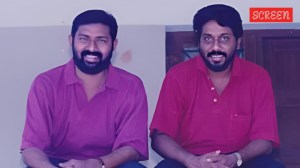Tomorrow, India’s biggest journalism awards
On Monday, India’s biggest media awards will be announced and presented in New Delhi at a function presided over by President A P J Abdul Kalam.

On Monday, India’s biggest media awards will be announced and presented in New Delhi at a function presided over by President A P J Abdul Kalam.
Instituted last year, the Ramnath Goenka Excellence in Journalism Awards aim to recognise and reward the best in journalism in India.
A year on, the Indian media scene has grown phenomenally, but the challenge remains to choose quality amid so much quantity. On Monday, the second RNG awards for works done in 2005-06 will do just that. These will salute and celebrate stories which made a difference and journalism that met the highest standards.
With new categories introduced this year, the reach of this exercise is formidable. Recognising the importance of reporting on HIV/AIDS, the Ramnath Goenka Memorial Foundation, in association with the USAID, Avert Society and Health Communication Partnership/Johns Hopkins University, will present two awards for
excellence in HIV/AIDS reporting, one in English and the other in Marathi. This year, awards have also been introduced for books (non-fiction) and sports journalism.
Two books in The Indian Express Group Book Series will be launched at the function:India Empowered, a collection of articles by leaders from various fields written for a special series published by the newspaper, and The Prize Stories, a book on the reports that won the awards last year.
The inaugural Ramnath Goenka Memorial Debate will follow the awards. A panel, which includes Shobhana Bhartia of The Hindustan Times; Subhash Chandra of Zee; Ravi Dhariwal of Bennett, Coleman & Co Ltd (the publishers of The Times of India); Rajat Sharma of India TV; Rajdeep Sardesai of CNN-IBN; and Barkha Dutt of NDTV,
will discuss a question that has haunted newsrooms, ‘Is Excellent Journalism Bad Business?’.
The recent years have seen a boom in entertainment and a corresponding growth in news on entertainment, which is why a new award has been instituted in this category. As jury member and filmmaker Shyam Benegal points out, “The concept of news in India is broadening. It is no longer just about politics and politicians.”
The impact of the awards last year meant the entries went up this year, making difficult the task of the distinguished independent jury — including N R Narayana Murthy, Infosys Chairman; Naresh Chandra, former Indian Ambassador to the US; Dr M S Swaminathan, agricultural scientist; Shobhana Bhartia, Vice-Chairperson and Editorial Director, HT Media Limited; Bakul Dholakia, IIM-A Director; Rama Bijapurkar, leading management consultant; Benegalfilmmaker; Deepak Parekh, HDFC Chairman; legal luminary Fali S Nariman; Subir Raha, former ONGC Chairman and Managing Director; and Keshub Mahindra, Chairman, Mahindra & Mahindra.
Says IIM-Ahmedabad Directer Dr Dholakia: “There was more diversity in terms of impact and content, which made judging more difficult. This award will establish a benchmark in journalism. It will help the Indian media attain global standards. In this mad rush of competition, the media could adopt shortcuts. In such a scenario, the highest standards in terms of maintaining norms are required… It’s not just journalism of courage, journalism should have the highest moral and ethical standards.”
The award-winning entries attained these standards.
AWARD CATEGORIES
• Journalist of the Year (Print and Broadcast)
• Uncovering India Invisible (Print and Broadcast)
• Political Reporting (Print and Broadcast)
• Business and Economic (Print and Broadcast)
• Environmental Reporting (Print and Broadcast)
• Foreign Correspondent (Print and Broadcast)
• Covering Northeast (Print and Broadcast)
• Regional Award: Jammu and Kashmir (Print and Broadcast)Hindi (Print and Broadcast)Regional Languages (Print and Broadcast)
• Sports Journalism (Print and Broadcast)
• Reporting on HIV/AIDS (English and Marathi)
• Books (English Non-Fiction)
• Film and Television (Print and Broadcast)




- 0114 hours ago
- 0214 hours ago
- 0314 hours ago
- 0414 hours ago
- 0515 hours ago



























